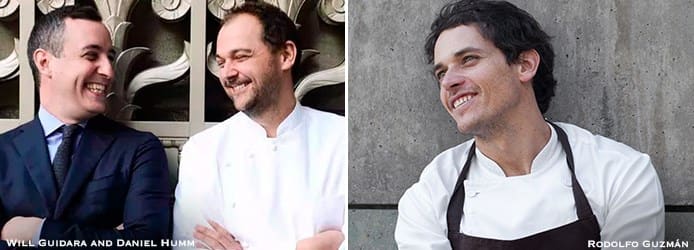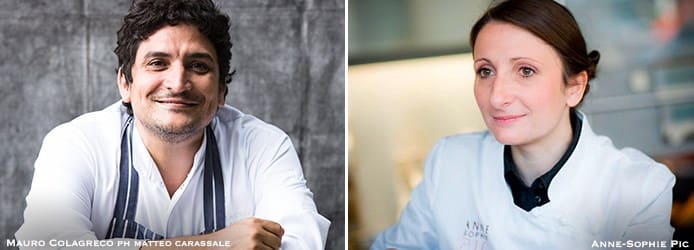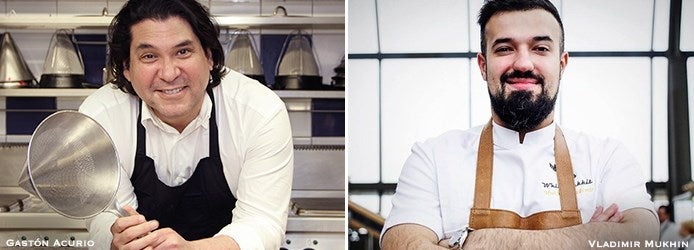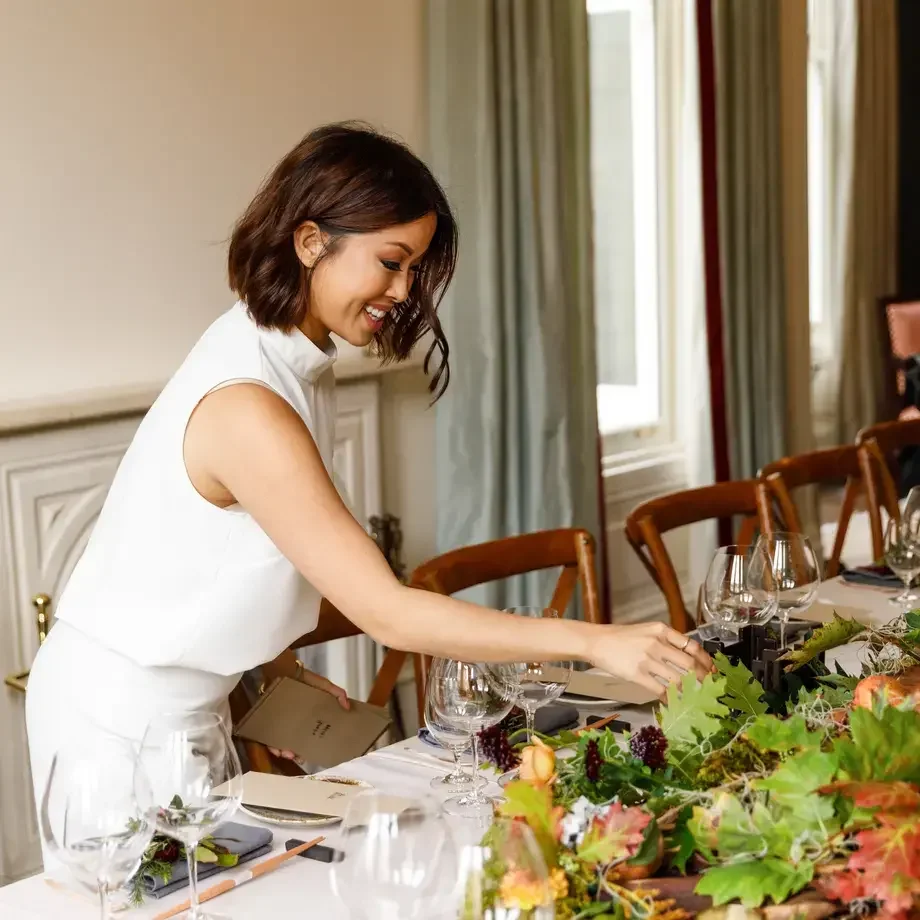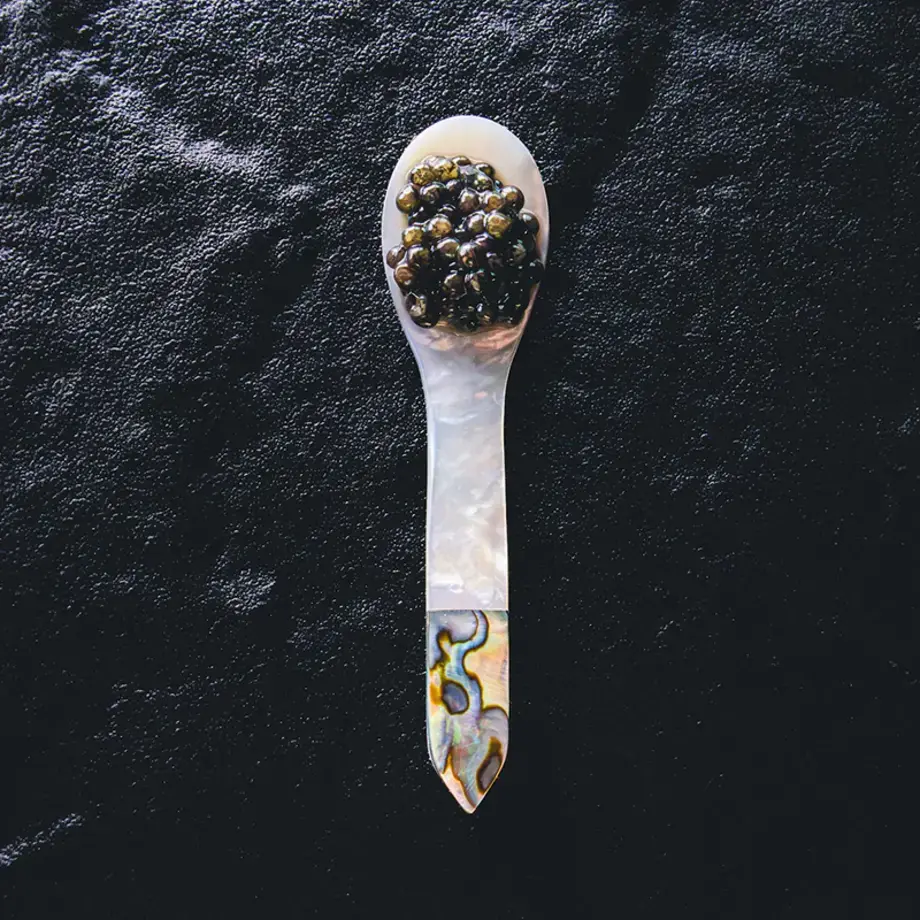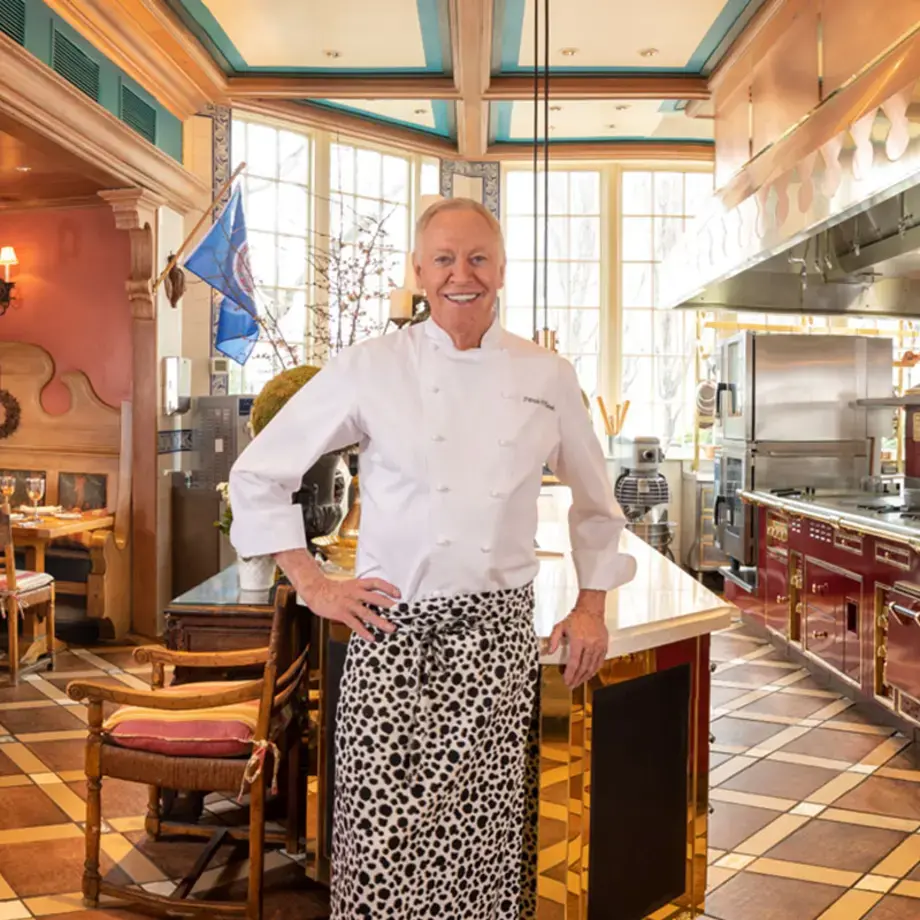Anne-Sophie Pic (Maison Pic)
"I think a fine dining restaurant is somewhere you come for a very special experience. It’s a place you feel at home, in a way, but you have to be surprised. It’s really linked with emotion – you can feel when you’re in a fine dining restaurant. Of course, it’s a question of taste mainly, because taste provides emotion, but also it’s about the capacity of the team, the service, to transmit the feelings of the chef and the kitchen.
"Has the definition of fine dining changed? Of course. It’s difficult to find real harmony between innovation and tradition. Today we can’t say tradition is bad and innovation is good, it’s just we have to keep in mind that we’re here today because of tradition. You don’t have to throw it away."
Mauro Colagreco (Mirazur)
"For me it’s a big question. It’s a place where you work with memory, with art. I think it’s a place where you find emotions, luxury – but new luxury. Once, to have a garden was common, something everyday, but today to eat something from the garden is a luxury. Luxury has changed."
Gastón Acurio (Astrid y Gastón)
"For me it’s a weapon. It’s sometimes an embassy of another culture, or country. An opportunity to use what you do to show things about the environment, sometimes it’s about cultural issues. But of course, it’s a space of pleasure, a space of inspiration, a space of research, to open new fields and new ways to combine ingredients, but it’s never been like it is now. A restaurant can be used as – while you are giving pleasure to people – an ambassador of the whole food chain: farmers, consumers, health issues, environmental issues, economical issues, social issues. At the same time, why are we here at 50 Best? We are celebrating diversity, cultures celebrating together, embracing each other. Food joins us."
Vladimir Mukhin (White Rabbit)
"I really hate the term fine dining, you know why? In Russia we have a big problem with people who think that they’re fine dining, who just come to restaurants to show each other and never eat. Just take one dish, show each other... Now we’re starting to change this. We’ve started to understand Russian cuisine. I started travelling inside Russia. A fine dining restaurant for me is like a lab of ideas. We know something now about Russian cuisine and we’re sharing it with the Russian people. If you go to Moscow you find the same as you find in New York, in Tokyo ... but if you go to the villages you can find a lot of interesting food there. A fine dining restaurant, for me, is the chance to find, understand and share Russian cuisine and try and be better than yesterday."


